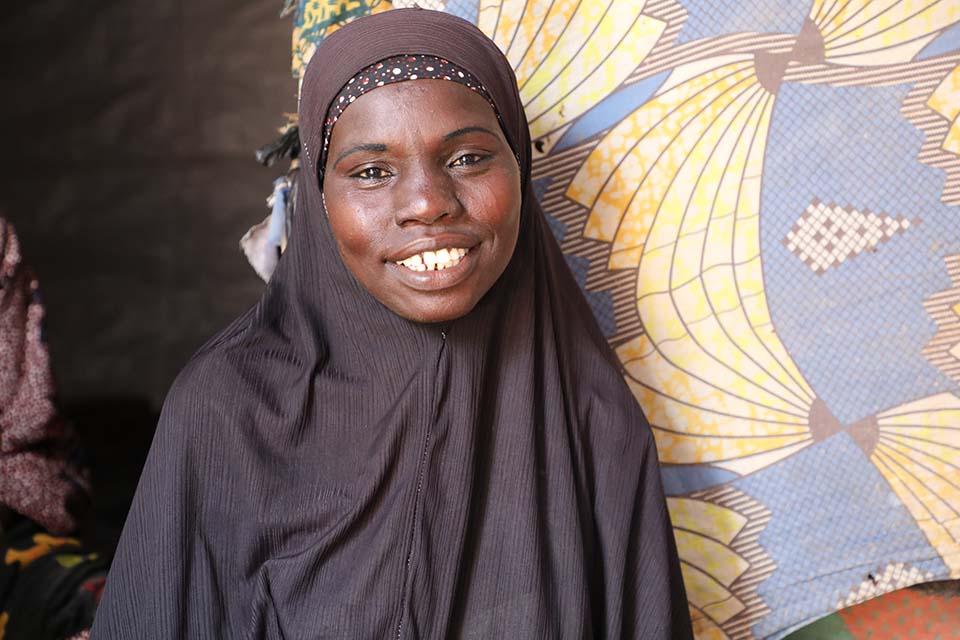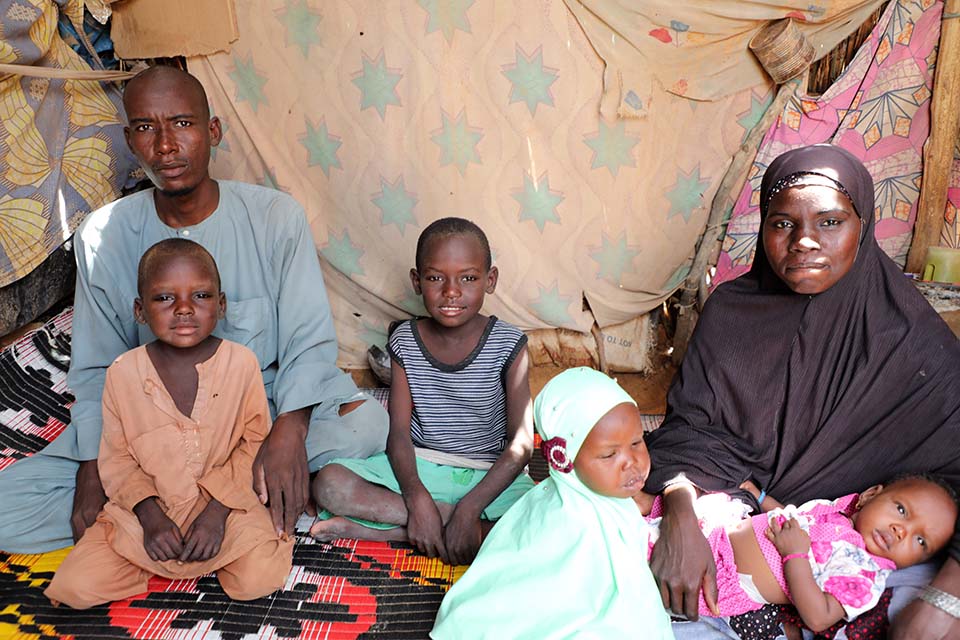

Improving Shelter for Displaced families in Niger
Maimouna Goni Kado lives with her four children at Awaridi—an internally displaced persons’ site in the community of Diffa, Niger. Following attacks by armed groups, Maimouna fled her village for a safe place. The departure was abrupt, and she left all her belongings behind. Until now, Maimouna and her children have been living in very basic conditions without proper protection from the weather.

Maimouna Goni Kado in her home at the Awaridi site.
Photo by Hadjara Laouali Balla/CRS
In November 2021, Catholic Relief Services and local partner Development for Well-Being, or DEMI-E, launched a project to assist people affected by crisis in the communities of Diffa and Toumour. Years of conflict in the Western Sahel have eroded security in Niger’s border regions and led thousands of displaced people to seek safety in host communities. In the Diffa Region in the east, regular attacks by Boko Haram since 2014 and entrenched insecurity cause regular displacement and disrupt livelihoods. The region is currently home to more than 250,000 displaced people, many of whom live in inadequate housing with no access to essential items, like blankets and soap.
The community worked with project staff members to develop criteria for who should be prioritized for assistance. The community agreed to the criteria during a village-wide meeting facilitated by CRS. After validating the criteria for vulnerable households, focus groups were organized with key decision-makers chosen by the community. With the help of project staff members, they identified and classified households according to the criteria. The community agreed to prioritize aiding women-headed households, people living with sub-standard housing and those caring for children under five.

Maimouna with her husband Mata Mallam and their children in their home at the Awaridi site.
Photo by Hadjara Laouali Balla/CRS
Based on this, Maimouna and her children received a shelter kit with supplies to improve their home, essential household items and a small cash allowance to purchase other things her family needs.
With funding from the Regional Humanitarian Fund for West and Central Africa, a pooled fund that supports humanitarian assistance in the Sahel region, the project reached 800 vulnerable families. Based on a needs assessment conducted by CRS in 2021, nearly 75% of vulnerable people lived in sites that did not meet their needs for shelter and household supplies.Assisting people these families to improve their shelter is a critical priority.

